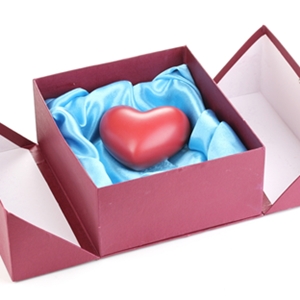
Heart pumps are gaining wider acceptance, even though they are often regarded as second best to a cardiac transplant, because there are not enough donor hearts to go around, doctors say.
When doctors at Hanover Medical School (MHH) recently implanted a heart pump in an 18-year-old man, it was the 1 000th time the particular device had been implanted in Germany.
Called HeartMate II and manufactured by California-based Thoratec Corporation, the "left ventricular assist device", or LVAD, circulates blood throughout the body when the heart is too weak to pump blood on its own.
It is about 8 centimetres long, weighs about 280 grams and is attached by an external driveline to a small controller and two batteries worn under or over clothing.
Such devices generally serve as a "bridge" to a heart transplant.
The recipient of the heart pump was Jan-Lukas Huelsebus from
the north-west German city of Papenburg. Formerly employed as a skilled
construction worker, he was diagnosed with severe cardiac insufficiency in
mid-December and has been living with the pump since January.
Quality of life varies
He does not look like a heart patient.
"I'm doing great - as if nothing happened," Huelsebus said. He is not allowed to go swimming or to a disco however. The risks - of contracting an infection, for example - would be too great. But this does not bother Huelsebus.
"Personally, it doesn't matter to me if I sit at home or party," he remarked.
"Since there are far too few donor hearts in Germany, ventricular assist devices are gaining in importance," said Axel Haverich, director of MHH's Department of Cardiothoracic, Transplantation and Vascular Surgery.
Artificial hearts have been implanted in Germany since 1987 - about 800 last year alone. There are five to seven different types.
"Patients' quality of life varies," Haverich said. Many are satisfied at first but then become annoyed by the device. Some prefer it to a heart transplant.
Artificial hearts were originally intended as a temporary measure until a donor heart became available. But because the growing number of elderly people with cardiac insufficiency far outstrips the supply of donor hearts, Haverich said, the devices are sometimes implanted as long-term therapy.




 Publications
Publications
 Partners
Partners















